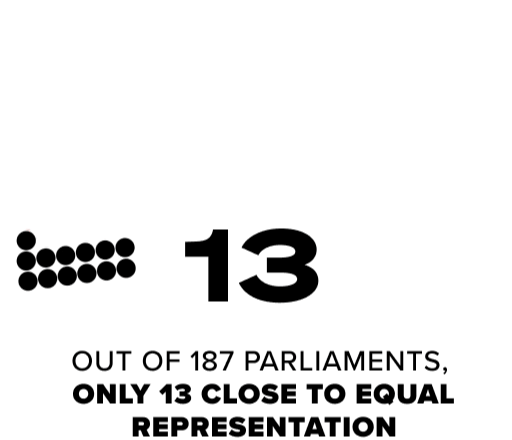Leadership in the 21st century
We face a global crisis of trust.
COVID-19 has caused the greatest ever recorded reversal in human development. It has also compounded the crises that we already face: planet threatening climate change, environmental degradation, poverty and deepening inequalities.
The pandemic also underscored how vital effective political leadership is in all aspects of our lives. It has never been more important to have political processes and institutions that we can trust to act in our best interests. Evidence of this is apparent; countries with trusted leadership simply tended to mount better pandemic responses. The same is true of recovery; the most effective ones tended to be the most inclusive.
And while governments picked up a brief increase in trust due to their initial COVID-19 responses, this bubble soon burst. The 2021 Edelman Trust Barometer revealed “an epidemic of misinformation and widespread mistrust of societal institutions and leaders around the world”.
Hard on the heels of the pandemic came the Russian aggression in Ukraine, highlighting the human cost of conflict, this time arising from the wilful flouting of international law, and further undermining confidence in rules-based systems of governance.
The rise of authoritarianism, restricting inclusive debate and discussion and substituting it for divisive dictatorship, is yet another manifestation of this global crisis of trust.
All these developments serve as a clarion call for a complete reboot of our governance processes and institutions, to make them fit for the contemporary challenges we face, to better empower people’s voices on the issues that matter, and to hold decision-makers to better account.
The future of leadership
The peaceful, just, and inclusive societies envisioned by Sustainable Development Goal (SDG) 16 cannot be built without reimagining governance. This is a key facet of UNDP’s new Strategic Plan, which emphasizes that the traditional social contract is no longer working for millions of people, at the same time as political polarization, the climate emergency, conflicts, and the forced displacement that follow in their wake are making lives and livelihoods even more fragile.
UNDP’s recently-released third Global Parliamentary Report is based on two years of research, and contributions from more than 70 parliaments. Written with the Inter-Parliamentary Union (IPU), it calls for radically better public engagement on the part of parliaments and parliamentarians and provides dozens of examples of good practice.
It recognizes the overlapping crises faced by representative governance institutions, and notes that even well-resourced parliaments in long-established democracies face challenges engaging effectively. It finds that an inclusive, systematic and ongoing dialogue that involves all levels of society is key.
“This new report offers examples and analysis from a range of country contexts. Parliaments are foundational for peaceful and prosperous societies, and UNDP and the Inter-Parliamentary Union will continue to provide tailored assistance to them.”—UNDP Administrator Achim Steiner
The report stresses flexibility, forward thinking and inclusiveness, and notes the potential for digital engagement, especially with younger people, as a future-proofing tool.
What is
“future proofing”?
While we cannot predict the future, we can plan for its contingencies. Future proofing is the process of anticipating the future and developing methods of minimizing shocks and stresses. Governments need this skill now more than ever. And taking young people seriously, and treating them as equals, is vital to this process.
This generation of young people is the largest in human history. There are now 1.8 billion people between the ages of 10-24. To remain relevant, parliaments need to connect and interact with them in meaningful ways.
And the potential for digital engagement as a future-proofing tool extends to other key constituencies. Parliaments have a special responsibility to ensure that communities and groups that are underrepresented, face disadvantage, or are disengaged from decision-making have their voices heard.
The report advises keeping ahead of technological change and innovation that can usher in transformation, particularly in public engagement. It predicts that effective future leadership will require bold and creative approaches, and new partnerships to meet challenges that arise well beyond the traditional national boundaries that previously limited our thinking.

Women and
(lack of) power
Women remain significantly underrepresented in the corridors of power. As a result, all of society fails to reach its full potential, since inclusive societies tend to be more peaceful, fair, and prosperous.
The latest IPU statistics show that out of 187 national parliaments only 13 were even close to equal representation.
This unequal playing field remains distorted by a male-dominated political culture and outdated social stereotypes. When women run for office, they are often exposed to sexism, harassment and violence. Campaign finance is usually harder for them to get. Expectations that they will find time for other duties, such as those in the family, are for the most part, not placed on men.
This is compounded by the rise of gendered online violence, which has increased significantly since it and other forms of discourse moved online during the pandemic.
We all need to understand and confront the barriers that keep women from public office, and that hamper their equal progress even after they are elected. The more inclusive societies that will result can only benefit us all.
Committing to
real change
The global task of achieving the Sustainable Development Goals and Agenda 2030 was immense even before the pandemic.
And as the war in Ukraine, as well as conflict and political instability in places such as Yemen, Afghanistan, Ethiopia and Myanmar have brutally demonstrated, today’s challenges are a fast-moving target—interconnected puzzles of risk that call for systemic not piecemeal solutions.
We need political leadership that is bold, forward thinking, trusted, open, inclusive, and committed to real change.
UNDP and IPU continue to demonstrate their commitment to shaping parliaments across the world that are fit for their purpose and stand ready to meet the immense tests that this century now poses.
Through this and many other important partnerships, we’re working to transform governance so that it sustains peace and supports human rights and sustainable development.





 Locations
Locations